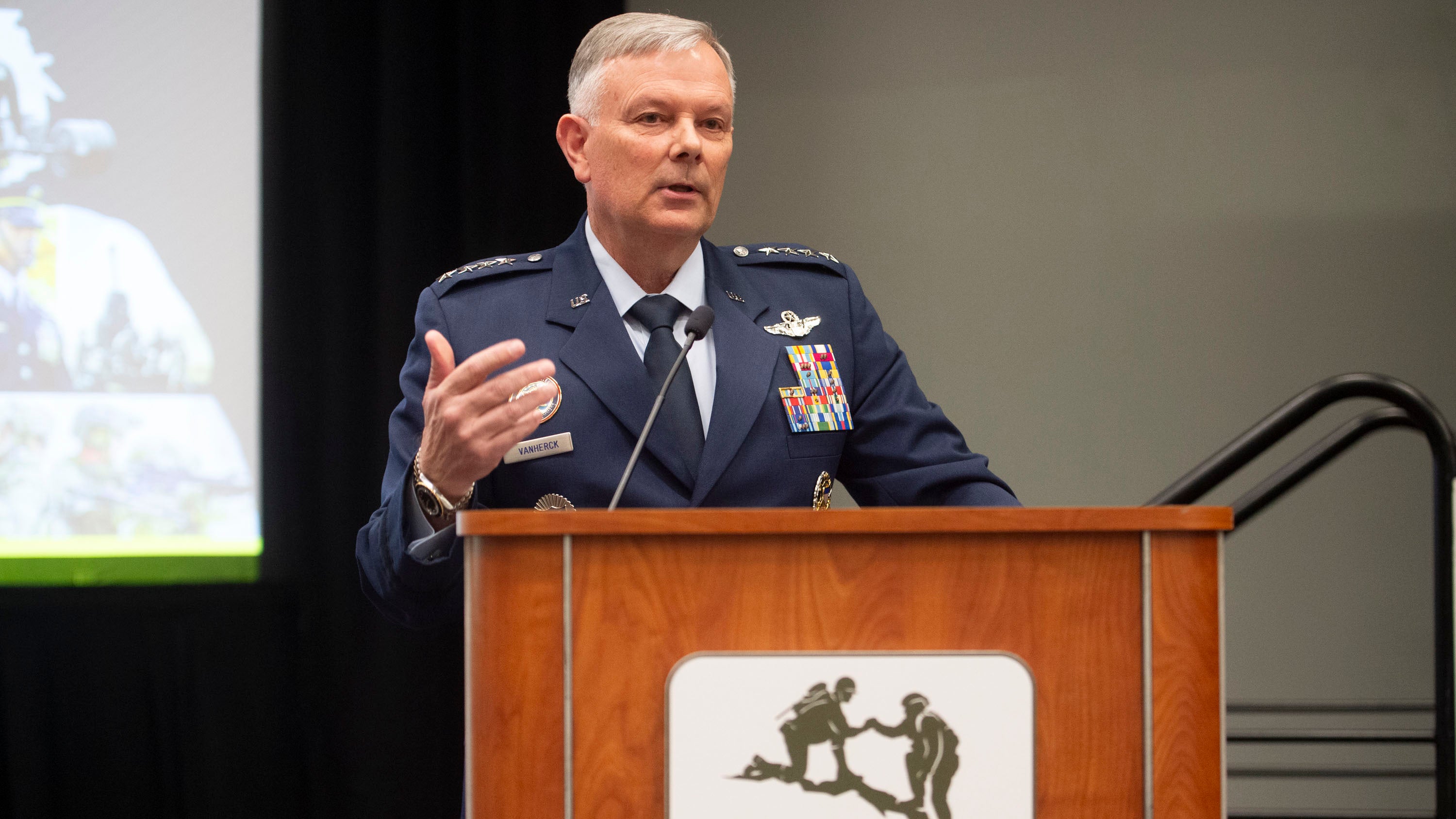US Faces ‘Dynamic’ Threats to the Homeland
US Faces ‘Dynamic’ Threats to the Homeland

From cyberattacks to increasingly severe weather, the U.S. faces growing homeland security challenges, the commander of U.S. Northern Command said.
Conditions around the world are “the most dynamic and challenging as I’ve seen,” Air Force Gen. Glen VanHerck said.
Speaking at a homeland security seminar Oct. 10 at the Association of the U.S. Army’s 2023 Annual Meeting and Exposition in Washington, D.C., VanHerck said “environmental change is a challenge to us right now, especially here in the homeland. More hurricanes, more wildfires, but really what we’re seeing is the weather in the Arctic is creating opportunities and vulnerabilities for our adversaries.”
As an example, Russia is sailing through the Arctic to provide fuel to China, VanHerck said. “Significant things are happening in the Arctic. Fifty-two percent of my [area of operations] is in the Arctic. I care very much about what goes on in the Arctic and the challenges we face.”
The U.S. also is “under attack every day in the cyber domain and the information space,” VanHerck said.
Around the world, China and Russia remain real threats, and the two countries are working together, he said. The missile threat from North Korea continues to grow, with more than 70 launches last year, and “I significantly worry about Iran,” VanHerck said.
Transnational criminal organizations pose a “global problem, a multidomain problem and a problem here in the homeland,” he said. “We often talk about the symptoms—human migration, narcotics flow—but the problem is we have transnational criminal organizations with weapons on par with nation states around the globe,” VanHerck said.
America’s “strategic stability is eroding,” VanHerck said. “That’s what keeps me up a little bit.”
Amid this challenging environment, the military is the Federal Emergency Management Agency’s “most trusted partner,” said Deanne Criswell, FEMA administrator. “You are our most trusted team that comes in to help us in all the things we’ve seen,” she said, including “extreme weather events that have given us challenges we haven’t seen before.”
This includes teams that helped identify remains after the deadly wildfires on Maui, Hawaii, she said.
“Every time we call, you are always there, and we’re calling you more and more and for different things,” Criswell said.
The challenge for FEMA and organizations such as Northern Command and Army North will be determining the best way to respond to evolving and increasingly dangerous threats—all while dealing with today’s crises, Criswell said.
Leaders must think seriously about “how we’re approaching the different threats we’re facing, whether it’s climate-related disasters, whether it’s cyberattacks, whether it’s the border insecurity we’re facing or the contested information environment,” Criswell said.
“We’re constantly in this response mode,” Criswell said. “We don’t have the time or the staffing … to really think about the future and solely focus on how we can start to plan for that because we’re in this continuous repetitive cycle.”
— Michelle Tan

